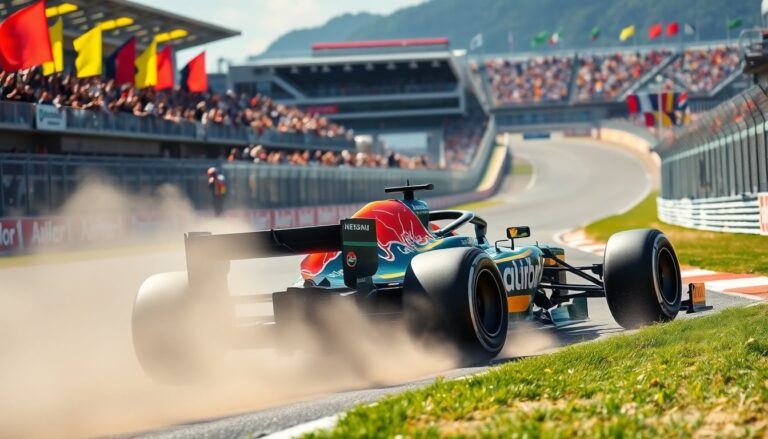Argomenti trattati
Formula 1 racing has enthralled audiences around the globe for many years, attracting fans from various backgrounds into its thrilling realm of speed and precision. As one of the most esteemed forms of motorsport, F1 merges advanced technology, strategic collaboration, and exceptional athleticism. This article examines the evolution of Formula 1, its technological advancements, and its notable cultural influence.
The historical journey of Formula 1
The origins of Formula 1 trace back to the early 20th century, culminating in the inaugural official World Championship held in 1950. Since then, Formula 1 has experienced significant transformations in regulations and technology. Initially, the sport was dominated by European teams, but it gradually expanded, welcoming drivers and teams from around the world.
One pivotal moment in Formula 1’s history occurred in the 1970s. This decade marked the introduction of enhanced safety standards in response to several tragic accidents. The adoption of these regulations signified the start of a new era, prioritizing the safety of both drivers and spectators.
Technological advancements in Formula 1
The evolution of Formula 1 has been closely tied to significant technological advancements. The introduction of turbocharged engines in the late 1970s and early 1980s marked a pivotal shift, enabling cars to reach unprecedented speeds. This innovation not only enhanced performance but also set new benchmarks in racing capabilities.
Furthermore, the rise of computer simulations and data analytics has transformed race strategies. Teams now utilize these tools to analyze vast amounts of data, leading to more competitive and efficient racing tactics. This analytical approach has become essential in today’s high-stakes environment.
More recently, the focus has shifted towards sustainability within the sport. The implementation of hybrid engines and a strong emphasis on energy efficiency reflect this commitment. These advancements aim to minimize the environmental impact of racing while simultaneously pushing the limits of engineering and innovation in motorsport.
The cultural significance of Formula 1
Formula 1 extends beyond a mere racing series; it has evolved into a cultural phenomenon that crosses international boundaries. With millions of fans worldwide, F1 races often represent more than just competitions. They are extravagant events that attract celebrities, influencers, and notable personalities, enhancing the sport’s allure and prestige.
The F1 calendar features iconic venues, from the enchanting streets of Monaco to the expansive circuits of Silverstone and Suzuka. Each race presents a distinct atmosphere, highlighting local culture while fostering tourism and economic development in host cities. This extensive reach has established Formula 1 as a formidable brand that resonates with diverse audiences.
The influence of F1 on technology and society
Formula 1’s impact transcends the racetrack, significantly affecting automotive technology and engineering practices throughout the industry. Innovations developed for F1, such as carbon fiber components and advanced aerodynamics, have been integrated into commercial vehicles, thereby enhancing safety and performance.
Moreover, Formula 1 is increasingly acknowledged for its commitment to social responsibility. Initiatives like the F1 Ambassadors program seek to foster diversity and inclusion within the sport, paving the way for greater representation in motorsport. The series also participates in various charitable activities, demonstrating its dedication to giving back to the community.
The future of Formula 1
Formula 1 is poised to evolve significantly as it responds to the ever-changing landscape of motorsport. New regulations and technological innovations are set to redefine the next generation of racing. The sport has also embraced digital transformation, implementing initiatives that enhance fan engagement through social media and interactive content.
Furthermore, the focus on sustainability is pivotal as Formula 1 aims for net-zero carbon emissions by 2030. This ambitious target underscores the sport’s commitment to addressing climate change and promoting a sustainable future.
As Formula 1 continues to innovate, it remains an exhilarating spectacle that captivates global audiences and drives technological progress. The sport’s evolution will undoubtedly influence both motorsport and the broader cultural landscape.

